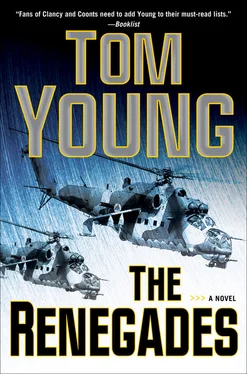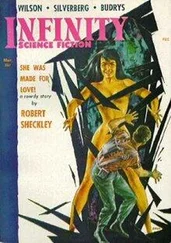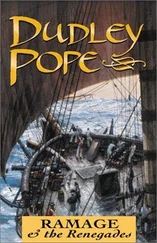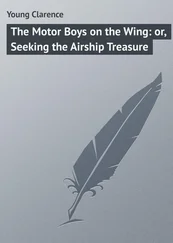Gold realized he was right about diagnosing too early. She knew of soldiers who’d had their bells rung by roadside bombs but escaped with no immediate impairment. Weeks later, however, traumatic brain injury cropped up. Problems with memory and concentration, headaches, depression.
The gunner climbed down from the turret. The corpsman cleaned the cut on the Marine’s head and placed an adhesive bandage over it. Then he checked the gunner’s responses the same way he’d checked Ann’s.
“I think you’ve had a concussion,” the corpsman said. “You’re lucky that’s all you got.”
“I know it,” the gunner said.
“We’ll get you guys back to Mazar,” Gold said. “You need to take it easy after a knock on the head like that.”
“I’m good to go, Sergeant Major,” the gunner said.
“Me, too,” Ann said. “Let’s get this thing done.”
Gold looked at the Marines around her. She admired their willingness to press on, but she wondered if it was smart. The corpsman had done his best, but if Ann and the gunner suffered from concussions, a doctor needed to look at them.
“Can you hang with it?” Blount asked. He twisted around in his seat, looked at the gunner, the Lionesses, and Gold. Clearly, he wanted to keep going.
“Yes, Gunnery Sergeant,” Ann said.
“Affirmative,” the gunner said.
Was it worth the risk? Gold knew she’d have to make the decision herself. She’d received approval for this mission because Parson and officers above him trusted her judgment. The whole point of combat: Stop the enemy—and not let him stop you. If this mission was worth starting, it was worth finishing.
“It’ll be tight,” Blount said, “but we can get everybody in the two good Cougars.”
A jingle truck sputtered toward the three halted MRAPs. The truck was the only vehicle Gold had seen since they’d turned onto this road. To her, the flatbed looked bizarrely festive with its ribbons, decorative chains, plastic flowers, medallions, and reflectors that adorned the sides. For whatever reason, truck drivers in this part of the world dressed their vehicles like automotive clowns. Blue smoke chugged from a corroded exhaust pipe that nearly dragged the ground. Tarps covered its cargo. For all Gold knew, the truck could have carried canned goods, bricks, or artillery rounds for the Taliban.
The driver stared straight ahead as he steered around the MRAPs. He seemed to want no eye contact with any of the Americans. The jingle truck rocked on its rusted, leaf-spring suspension as it receded into the distance.
“You can bet our boy there will tell somebody we’re here,” Blount said. “I suspect he’s picking up a radio right now.”
Blount had a point. Whether the team turned back or pressed on, Gold thought, they needed to do one or the other quickly. And after this morning, the bad guys would know they’d come this way. The route back might present more danger than the way forward.
She hoped she wasn’t making people take chances for a fool’s errand. But the tip from the women at the refugee camp represented her best hope for progress. It might actually lead to something useful. Gold remembered the car bombing of a hospital in Logar Province back in 2011. She’d been stateside at the time, but she’d followed the intel reports. Not only did the Taliban deny responsibility, they condemned the attack. Very unusual. Had that been Black Crescent’s debut? If rifts existed among the insurgents, the coalition needed to exploit them. Now.
“Are you two sure you’re all right?” Gold asked.
“I’m good,” Ann said.
“Semper fi,” the gunner said.
“Then let’s saddle up,” Gold said. “Thank you.”
“ That’s what I’m talking about,” Blount said. “We don’t stop for no firecracker buried in the dirt.”
Blount and the Marines from the disabled MRAP boarded the other two Cougars. Gold squeezed into the lead vehicle with Ann and Lyndsey. She wanted to keep an eye on Ann and make sure the injured Lioness got a seat. At the moment, though, Ann looked fine. Gold sat on the floor and balanced her rifle on the heel of its stock to keep the muzzle pointed in a safe direction. The bag of sugar rested beside her; it had come through the IED blast without breaking open. Gold took a little satisfaction that she’d remembered to bring the sugar from the damaged MRAP.
She couldn’t help thinking about what might have happened if they’d taken lighter vehicles. More than likely, most would have died. The survivors would have been disfigured and maimed for life. Gold had visited blast victims at Walter Reed and Bethesda, and she’d been awed by their grit as they faced years of painful rehabilitation and surgery. She offered a silent prayer of thanks as the two remaining Cougars started moving.
The grade of the road grew steeper, and the vehicles wallowed through another stream that bisected their path. Gold checked her map. She thought that creek might be the one the women had called Goat’s Gut. Beyond the stream, corn grew along both sides of the road so close that the drying leaves and tassels brushed the Cougars’ windows. Gold tensed; the cornfield made another good place for an ambush. But when no ambush came, she relaxed enough for the corn to remind her of vegetable gardens in New England and farms outside Fort Sill and Fort Campbell. It was late in the season, and the rustling field stood ready for harvest.
As the team climbed deeper into the hills, they met no other trucks, encountered no more pedestrians. Gold had never traveled this route before, so she didn’t know if the absence of traffic was unusual. Maybe the IED had scared everybody off the road. By some means Westerners could not understand—not even Gold—Afghan villagers seemed to communicate all events instantly. Most owned no phones or computers, but they always knew what was happening in their districts. Whether they’d tell an American soldier, however, was another matter.
After several more miles of fields, barren rock, and a thinned-out pine forest, the Cougars slowed to a crawl.
“Up ahead,” Blount said.
Gold crouched to look forward through the windshield. Nestled into a cove in the hills she saw a village of about six homes. The wood-latticed structures were made mainly of stone, with rough planking and thatch for roofs. A gray tabby prowled among boulders between two of the huts. A rooster flew from the cat’s approach and alighted atop one of the houses. At another home, a white flag fluttered from a rough-hewn tree limb that served as a pole.
The white flag was not a signal of surrender. It was the banner of the Taliban.
* * *
On his knees in the cabin of the downed helicopter, Parson held his pistol ready. His legs hurt like hell from when he’d fallen during the crash landing. He sniffed again for spilled fuel, smelled only normal engine odors. Rashid killed the battery switch, and the interphone went dead. With not even static on the circuit now, Parson tore off his headset and pitched it onto the troop seats by his helmet bag. The Afghans shouted in Pashto.
“What the hell just happened, Rashid?” Parson yelled.
Rashid barked a command, apparently an order for silence. Then he said, “Lieutenant Aamir want to give you to ransom.”
A chill went through Parson. Not caused by the rising wind, but by stirrings of rage. As a lieutenant colonel, an adviser to the Afghan Air Force no less, he would have made one hell of a prize. The military would not have paid ransom for him, but the insurgents didn’t know that. One group might have sold him to another. Or perhaps they’d have simply murdered him on video. No wonder that bastard flew off course. He’d never been lost; he was just heading for a different destination.
Читать дальше












